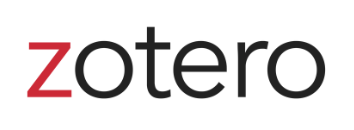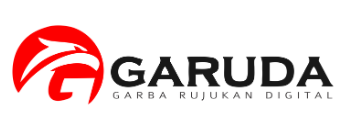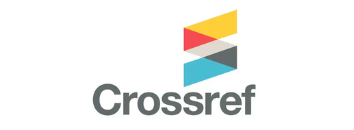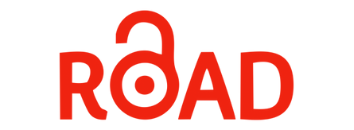Management Background, Intellectual Capital and Financial Performance of Indonesian Bank
DOI:
https://doi.org/10.24002/kinerja.v21i2.1275Abstract
This research aims to determine the effect of management background which proxy by accounting education background, MBA education background, Chinese ethnicity and intellectual capital (VAIC) on conventional banks’ financial performance (ROA) in Indonesia. The Population consists of all conventional banks listed on Indonesia Stock Exchange period of 2012 to 2015. Using purposive sampling method to screen the data, the final sample for this research is 140 data that consists of 39 banking companies. This research used Eviews7 software to conduct panel data regression analysis. The results showed that accounting education background and Chinese ethnicity are not significantly affect financial performance. Meanwhile MBA education background and VAIC are significantly affecting financial performance (ROA).
Keywords: management background, VAIC, ROA, banking.
References
Afrianto, D., 2016. Hadapi MEA, OJK: Perbankan Harus Keluar dari Comfort Zone. Available at : economy.okezone.com/read/2016/01/13/320/1287203/hadapi-mea-ojk-perbankan-harus-keluar-dari-comfort-zone. [Accessed April 9th 2017].
Ajija, S.R., Dyah W.S., Rahmat H.S., and Martha R.P., 2011. Cara Cerdas Menguasai Eviews. Jakarta: Salemba Empat.
Barney, J. 1991. Firm resources and sustained competitive advantage. Journal of management, 17(1), pp.99-120.
Baruch, Y. 2009. To MBA or not to MBA. Career Development International, 14(4), pp.388-406.
Belkaoui, A.R., 2003. Intellectual capital and firm performance of US multinational firms: a study of the resource-based and stakeholder views. Journal of Intellectual capital, 4(2), pp.215-226.
Bokpin, G.A. 2013. Ownership structure, corporate governance and bank efficiency: an empirical analysis of panel data from the banking industry in Ghana. Corporate Governance: The international journal of business in society, 13(3), pp.274-287.
Bontis, N., Chua Chong Keow, W., and Richardson, S. 2000. Intellectual capital and business performance in Malaysian industries. Journal of intellectual capital, 1(1), pp.85-100.
Botes, V., Low, M., and Chapman, J. 2014. Is accounting education sufficiently sustainable?. Sustainability Accounting, Management and Policy Journal, 5(1), pp.95-124.
Brigham, E.F., and Houston, J.F., 2010. Dasar-dasar Manajemen Keuangan. 11th ed. Jakarta: Salemba Empat.
Darmadi, S., 2013. Board members' education and firm performance: evidence from a developing economy. International Journal of Commerce and Management, 23(2), pp.113-135.
Ernst and Young Indonesia., 2015. Indonesian Banking Industry Challenging yet Promissing. Periodical Publishing.
Ghozali, I., 2012. Analisis Multivariate dengan Program SPSS. 6th ed. Semarang: Badan Penerbit Universitas Diponegoro.
Gujarati, D. N., and Porter, D. C. 2009. Econometric Modeling: Model Specification and Diagnostic Testing. Basic Econometrics (Fifth ed.). New York: McGraw-Hill Irwin/
Hwang, A., Bento, R., and Arbaugh, J. B. 2011. Post-MBA industry shifts: An investigation of career, educational and demographic factors. Career Development International, 16(6), pp.592-615.
Jensen, M. C., and Meckling, W. H. 1976. Theory of the firm: Managerial behavior, agency costs and ownership structure. Journal of financial economics, 3(4), pp.305-360.
Kalkan, A., Bozkurt, Ö. Ç., and Arman, M. 2014. The impacts of intellectual capital, innovation and organizational strategy on firm performance. Procedia-Social and Behavioral Sciences, 150, pp.700-707.
Kamath, G.B., 2007. The intellectual capital performance of the Indian banking sector. Journal of Intellectual Capital, 8(1), pp.96-123.
Khan, F. A., Khan, R., and Khan, M. A. 2012. Impact of intellectual capital on financial performance of banks in Pakistan: Corporate restructuring and its effect on employee morale and performance. International Journal of Business and Behavioral Sciences, 2(6), pp.22-30.
Kieso, Donald E.; Jerry Weygandt and Terry D. Warfield. 2011. Intermediate Accounting IFRS Edition. United States: John Wiley & Sons, Inc.
Komite Nasional Kebijakan Governance. 2006. Pedoman Umum Good Corporate Governance di Indonesia. Available at www.governance-indonesia.or.id/main.htm.
Kusumastuti, S., Supatmi, S., and Sastra, P. 2008. Pengaruh Board Diversity Terhadap Nilai Perusahaan dalam Perspektif Corporate Governance. Jurnal Akuntansi dan Keuangan, 9(2), pp.88-98.
Latumaerissa, J. R. 2011. Bank dan Lembaga Keuangan Lain. Salemba Empat, Jakarta.
Lindorff, M., and Prior Jonson, E. 2013. CEO business education and firm financial performance: a case for humility rather than hubris. Education+ Training, 55(4/5), pp.461-477.
Lingle, J.H. and Schiemann, W.A., 1996. Managing Change: Performance Measurement for Destination. White Paper.
Mavridis, D.G. 2004. The intellectual capital performance of the Japanese banking sector. Journal of Intellectual Capital, 5(1), pp.92-115.
Nawaz, T., Nawaz, T., Haniffa, R., and Haniffa, R. 2017. Determinants of financial performance of Islamic banks: An intellectual capital perspective. Journal of Islamic Accounting and Business Research, 8(2), pp.130-142.
Nkundabanyanga, S.K. 2016. Board governance, intellectual capital and firm performance: Importance of multiplicative effects. Journal of Economic and Administrative Sciences, 32(1), pp.20-45.
Nimtrakoon, S. 2015. The relationship between intellectual capital, firms’ market value and financial performance: Empirical evidence from the ASEAN. Journal of Intellectual Capital, 16(3), pp.587-618.
Panda, D., and Reddy, S. 2016. Resource based view of internationalization: evidence from Indian commercial banks. Journal of Asia Business Studies, 10(1), pp.41-60.
Piperopoulos, P. 2010. Ethnic minority businesses and immigrant entrepreneurship in Greece. Journal of Small Business and Enterprise Development, 17(1), pp.139-158.
Pulic, A., 2008. The Principles of Intellectual Capital Efficiency – A Brief Description. White Paper.
Sawarjuwono, T., and Kadir, A.P. 2004. Intellectual Capital: Perlakuan, Pengukuran dan Pelaporan (Sebuah Library Research). Jurnal Akuntansi dan Keuangan, 5(1), pp.35-45.
Sekaran, U, and Bougie, R. 2013. Research Methods for Business, a Skill Building Approach. 6th ed. New York: John Wiley & Sons, Inc.
Setiawan, S.K.D., 2016. Jelang MEA Perbankan 2020, PR Masih Banyak. Available at http://bisniskeuangan.kompas.com/read/2016/01/13/131500226/Jelang.MEA.Perbankan.2020.PR.Masih.Banyak. [Accessed June, 9th 2016.]
Suhardjanto, D., and Permatasari, N. D., 2010. Pengaruh Corporate Governance, Etnis, Dan Latar Belakang Pendidikan Terhadap Environmental Disclosure: Studi Empiris Pada Perusahaan Listing di Bursa Efek Indonesia. KINERJA, 14(2), pp.151-164.
Ulum, I., Ghozali, I., and Purwanto, A., 2014. Intellectual capital performance of Indonesian banking sector: a modified VAIC (M-VAIC) perspective. Asian Journal of Finance & Accounting, 6(2), pp.103-123.
Warnier, V., Weppe, X., and Lecocq, X. 2013. Extending resource-based theory: considering strategic, ordinary and junk resources. Management Decision, 51(7), pp.1359-1379.
Zu, X., and Kaynak, H. 2012. An agency theory perspective on supply chain quality management. International Journal of Operations & Production Management, 32(4), pp.423-446.














